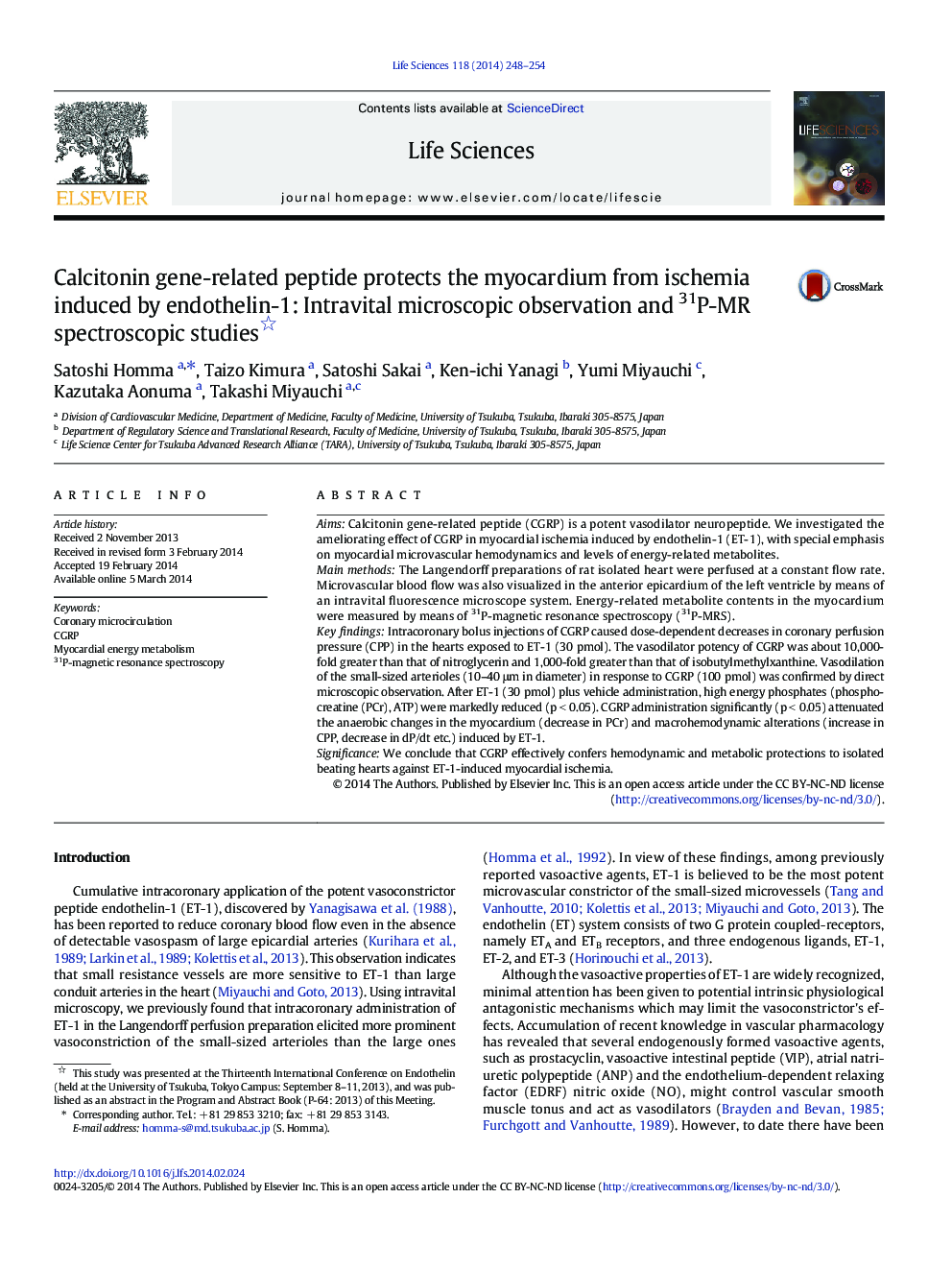| Article ID | Journal | Published Year | Pages | File Type |
|---|---|---|---|---|
| 5841895 | Life Sciences | 2014 | 7 Pages |
AimsCalcitonin gene-related peptide (CGRP) is a potent vasodilator neuropeptide. We investigated the ameliorating effect of CGRP in myocardial ischemia induced by endothelin-1 (ET-1), with special emphasis on myocardial microvascular hemodynamics and levels of energy-related metabolites.Main methodsThe Langendorff preparations of rat isolated heart were perfused at a constant flow rate. Microvascular blood flow was also visualized in the anterior epicardium of the left ventricle by means of an intravital fluorescence microscope system. Energy-related metabolite contents in the myocardium were measured by means of 31P-magnetic resonance spectroscopy (31P-MRS).Key findingsIntracoronary bolus injections of CGRP caused dose-dependent decreases in coronary perfusion pressure (CPP) in the hearts exposed to ET-1 (30 pmol). The vasodilator potency of CGRP was about 10,000-fold greater than that of nitroglycerin and 1,000-fold greater than that of isobutylmethylxanthine. Vasodilation of the small-sized arterioles (10-40 μm in diameter) in response to CGRP (100 pmol) was confirmed by direct microscopic observation. After ET-1 (30 pmol) plus vehicle administration, high energy phosphates (phosphocreatine (PCr), ATP) were markedly reduced (p < 0.05). CGRP administration significantly (p < 0.05) attenuated the anaerobic changes in the myocardium (decrease in PCr) and macrohemodynamic alterations (increase in CPP, decrease in dP/dt etc.) induced by ET-1.SignificanceWe conclude that CGRP effectively confers hemodynamic and metabolic protections to isolated beating hearts against ET-1-induced myocardial ischemia.
Graphical abstractDownload high-res image (175KB)Download full-size image
